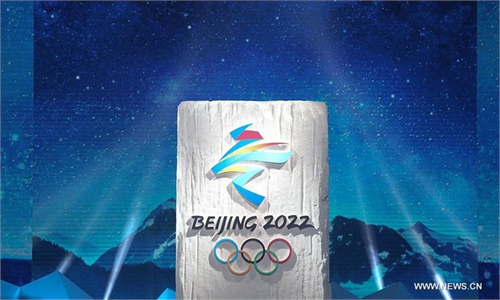
Illustration: Liu Rui/GT
On the Third Ministers' Meeting of the China-CELAC Forum, China and member states of the Community of Latin American and Caribbean States agreed to adopt the Joint Action Plan for Cooperation in Key Areas (2022-24) in December, 2021. Recently, the Daily Mail alleged that the Joint Action Plan, which includes "sharing nuclear tech, building 5G networks, developing space programs, and pumping cheap loans into America's back yard," is a "growing threat to the US".
In fact, China and Latin America and the Caribbean (LAC) countries share a common history of being undermined and exploited by hegemony and they all face a common development task. Any cooperation between both sides is completely voluntary, mutually beneficial and not directed at a third party. It's difficult for the US-led West with their history of exploitation to understand that countries suffering from slavery and suppression are less likely to bully other countries when they are strong.
However, the close ties between China and LAC countries upset the US who makes malicious speculations on China's "intention" toward LAC countries according to its hegemony thinking. As a result, the US has repeatedly maligned China, creating suspicion between China and LAC countries, hyping that China is "buying power and influence in America's back yard". The US even draws a red line, trying to impede LAC countries' cooperation with China.
The China-CELAC Joint Action Plan, on the other hand, is neither a contract nor a treaty, but rather a decision to cooperate in the areas where both parties have common ground among their respective development priorities. Cooperation in public health, 5G, aerospace, and nuclear energy is geared toward recovering from the COVID-19 pandemic, which is also necessary for developed countries.
The LAC regions have suffered the most from the pandemic since April, 2020, with medical care, economy, and society falling into complete disorder. However, the Trump administration turned a blind eye to the difficulties of these countries, which lead them to turn to China for help. The US did nothing as China used its rich experience and production capacity to help LAC economies.
The US, on the other hand, was absent for almost a year. After solving its own vaccine issues, the Biden administration started to provide vaccines to LAC countries in May 2021, which is welcomed by China. It is obvious which country treats LAC as a true friend and which treats it as a tool.
As for 5G technology, LAC countries' communication facilities are the weakest components of their infrastructure. Most parts of cities in LAC countries don't have 4G coverage, and some rural areas do not have mobile network coverage at all. Before the pandemic, many LAC countries made their own 5G plans to avoid being left behind. China, at the forefront of information technology for a long time, has the capability and willingness to cooperate with LAC countries, providing equipment and services at a low price and on a completely voluntary and equal basis.
On the contrary, although a superpower, the US has lagged behind China in 5G innovations. Moreover, the US has always treated cooperation with foreign countries as a tool to maximize its own interests and set up traps. It doesn't care about the long-term development of its partners that could lead to mutual benefits. For example, the US cannot provide any reliable 5G service but has demanded LAC countries not to use China's 5G technology and equipment.
The US prefers a divided LAC, and has engaged in moves to make this so. The region has sought integration in past centuries, but would often be met with dilemmas. The reason lies in the US' unwillingness to see a united LAC - the US thus has driven wedges among LAC countries and hindered local organizations from joining hands just as it did to hinder the free trade agreement between China and Japan.
Recently, the LAC countries have elected some left-wing leaders. This reflects that more local people have become aware of the US' hegemonic nature. In retrospect, more wonder whether they should govern under US-style ideology or choose their own path. Should their economic practices follow the Washington consensus and the US' patterns, or should they reflect the national characteristics and conform to the reality of the LAC? People expect their new leaders to conduct a structural reform. In the face of an awakening people, the US should no longer make decisions for others. Cooperation with China is chosen by LAC countries and cannot be interfered with by the US.
The author is executive director of the Latin American and Caribbean Region Law Center of China University of Political Science and Law. opinion@globaltimes.com.cn



